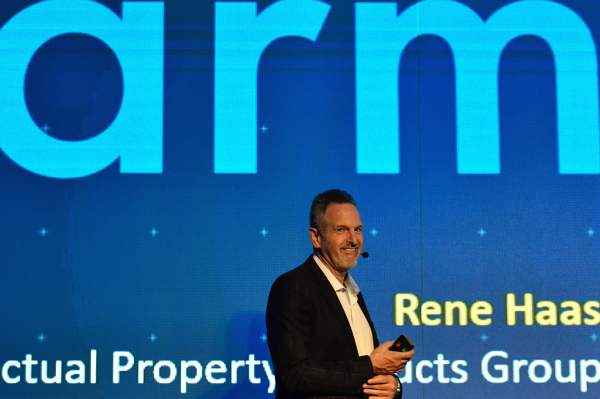Nvidia’s deal to acquire Arm is off, the two companies and Arm owner SoftBank announced Tuesday.
With this, there is also a major leadership change at Arm. The company’s current CEO, Simon Segars, is leaving his post, effective today, with Rene Haas, the president of Arm’s IP group (and former Nvidia VP and general manager of its computing products business), taking his role.
Since the deal is now off the table, Arm says it is exploring a public offering in lieu of the acquisition. The current plan is for the IPO to happen sometime within the next 12 months.
The Financial Times first reported that the deal had collapsed earlier today.
As Haas told me in an interview shortly before today’s announcement, Segars’ decision to leave the company was very much a personal choice. “He has decided that at this stage of his career, the time and energy required to take the company public and everything around that was not something he wanted to sign up to,” Haas said. “So he’s going to step down. I’m going to take over for him.”
“Rene is the right leader to accelerate Arm’s growth as the company looks to re-enter the public markets,” said Masayoshi Son, founder and CEO of SoftBank Group Corp. “I would like to thank Simon for his leadership, contributions and dedication to Arm over the past 30 years.”
Haas noted that Arm’s business today is stronger than ever.
“We are very enthusiastic and excited about this next chapter for the company,” he told me. “The company’s been doing great. […] Revenue and profitability levels never seen by Arm before and certainly not seen before we joined SoftBank. But, probably more importantly, the diversification of the business relative to what it looked like pre-SoftBank, we’re a much stronger company now in areas like the cloud and the data center, we’re a much stronger company in markets like automotive and we have a huge opportunity for future markets such as IoT and metaverse.”
While Haas wouldn’t comment any further on Nvidia’s and SoftBank’s decision, noting that the deal finally collapsed today, he admitted that the discussions about a leadership change had started earlier.
“While we are disappointed that the acquisition didn’t go through, we are, at the same time, very excited about our prospects going forward and can’t wait to get this next chapter started,” he said.
Haas wouldn’t say just yet what that will look like, but he noted that the company will continue its efforts to push into the CPU and GPU market, as well as continue its efforts in the AI space.
“Continuing what we’ve been doing and executing on that is going to be really important, because we’ve demonstrated a recipe on how to grow the business and we definitely want to continue that,” he said.
Nvidia CEO Jensen Huang echoed this.
“Arm has a bright future, and we’ll continue to support them as a proud licensee for decades to come,” he said in a statement. “Arm is at the center of the important dynamics in computing. Though we won’t be one company, we will partner closely with Arm. The significant investments that Masa has made have positioned Arm to expand the reach of the Arm CPU beyond client computing to supercomputing, cloud, AI and robotics. I expect Arm to be the most important CPU architecture of the next decade.”
In some ways, today’s announcement doesn’t come as a surprise. After the U.S. Federal Trade Commission announced that it would sue to block the merger, arguing that the combined company would be able to “unfairly undermine Nvidia’s rivals,” Bloomberg reported that Nvidia was preparing to abandon its plans. In the U.K., where Arm is headquartered, the merger hit similar roadblocks in recent months, as well as with EU antitrust regulators.
In the end, an Nvidia that dominated the GPU and AI accelerator market and also owned the IP to the chips that power virtually every smartphone and IoT device rang all kinds of alarm bells. The two companies would’ve likely had to make considerable changes to their deal to get it through the regulatory process.
Nvidia first announced its plans for this mega-merger in September 2020. At the time, Nvidia CEO Huang argued that this would allow his company to create “a company fabulously positioned for the age of AI.”
Throughout all of this, Nvidia’s and Arm’s leadership publicly remained optimistic that the deal would eventually pass muster with the regulatory authorities. Knowing that there would be some pushback, the two companies had always given themselves a lot of time to close this deal, with an expected closing date of March 2022, 18 months after the announcement.
In recent months, both companies admitted that they would miss this date. They were also up against a bit of a deadline of September 2022, after which SoftBank would keep its $1.25 billion breakup fee, though now that the deal is off, SoftBank will keep it anyway.
